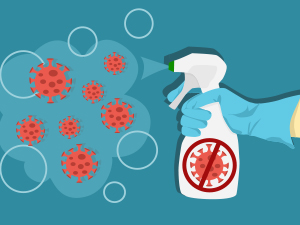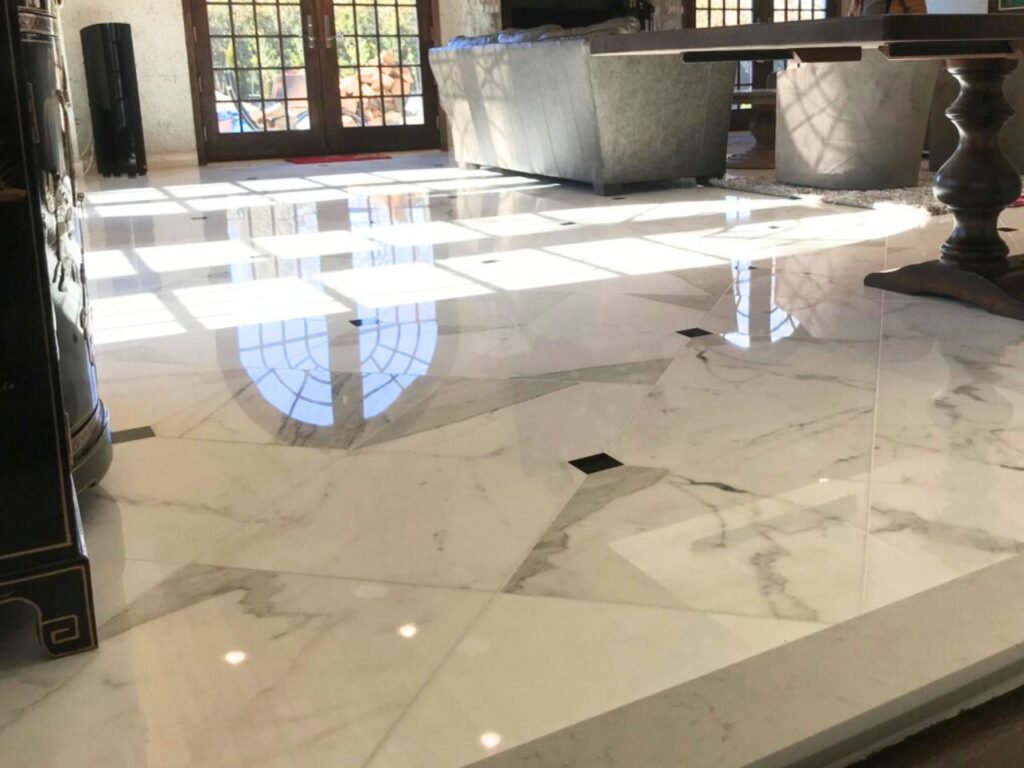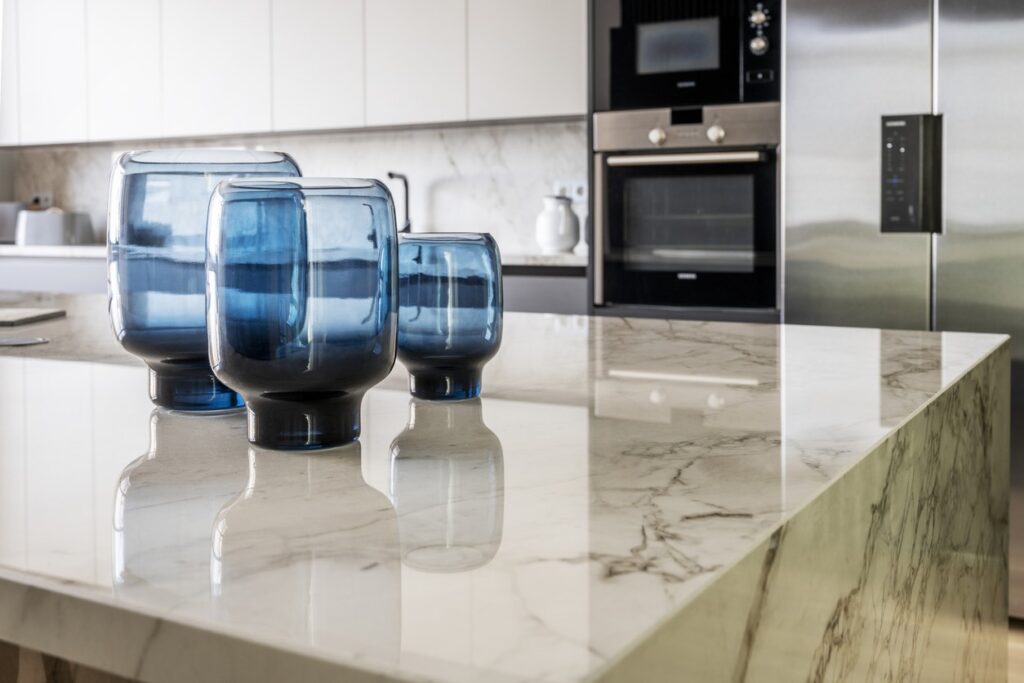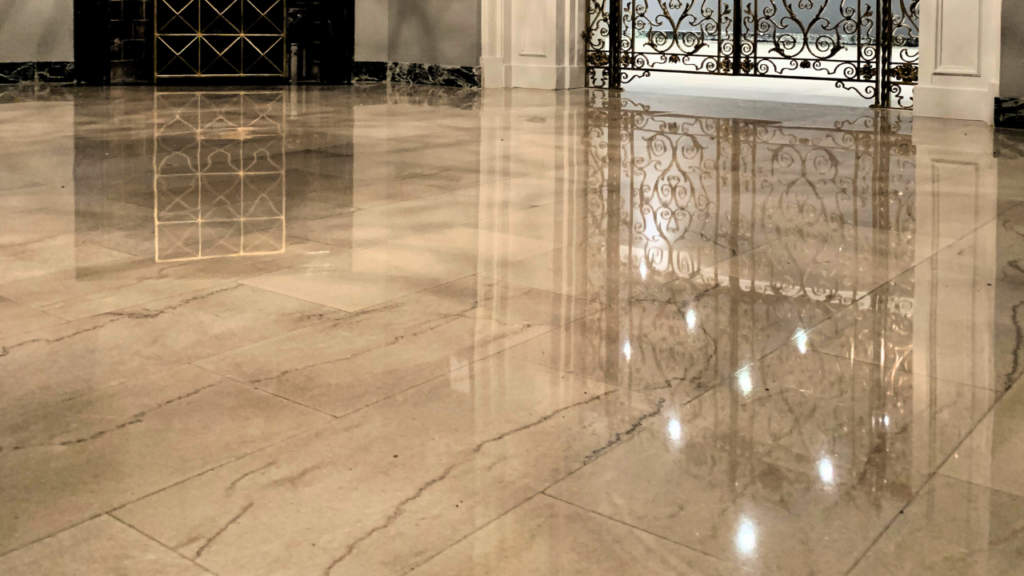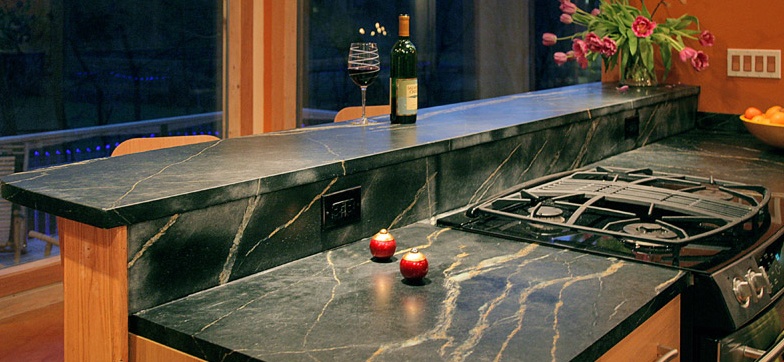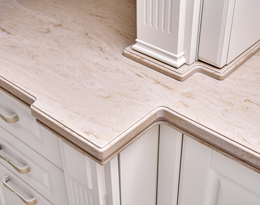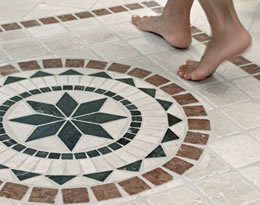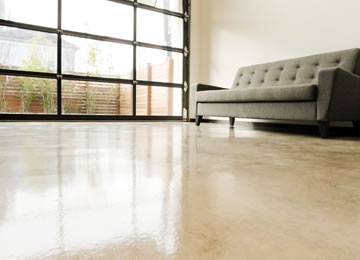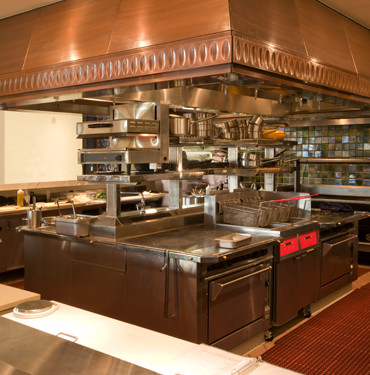Disinfecting countertop surfaces, including natural stone countertops, is important to help prevent the spread of infectious diseases and harmful bacterias, and other contaminants. Unfortunately, not all disinfecting cleaners are safe for natural stone. This article offers sound advice on how to disinfect your tops without accidentally causing etch damage, as well as what to do if you already have etch damage.
Etch Damage
Etching is chemical damage on the uppermost layer, or finish, of natural stone. When acidic substances react with the calcium in stone, the texture and appearance of the stone changes. Many people refer to etch damage as “water marks” because it often resembles the little puddle left on a countertop when condensation drips down the sides of a glass. Plain water can be wiped away, of course. Etch damage, which cannot simply be wiped away, can have that same circular shape when acidic drink spills go unnoticed a little too long.
Use a Stone-Safe Disinfectant Cleaner
For specific product recommendations for disinfecting, the Environmental Protection Agency published List N: Disinfectants for Use Against SARS-CoV-2. Check the label of whatever product you plan to use to be sure that it specifically states that it is safe to use on natural stone. You may also use this DIY cleaner: Mix 50% isopropyl rubbing alcohol with 50% water. This will be an effective disinfecting agent, provided you allow the solutions to dwell on your countertop for 3-5 minutes.
How to Remove Etch Damage
If your countertop already has etch damage, you may be able to remove it yourself using a marble polishing compound, provided the etch damage is minor, limited to a small area, and your countertop has a polished finish. Run your finger along the etch mark. If it has a different texture than the surrounding stone, the etch is likely too deep to remove using DIY methods. If your top has a honed finish, removing the etch will also create a shiny spot on the finish that does not match the surrounding stone. Your stone restoration technician can hone and polish to remove etch damage and restore the factory finish of your countertop.
For more information, refer to our recent article, The Coronavirus and Your Stone Countertops and our free, downloadable Stone and Tile Care Guide. Feel free to contact us with specific questions.
This is one of a series of articles written and published on behalf of Surface Care PRO Partners.

